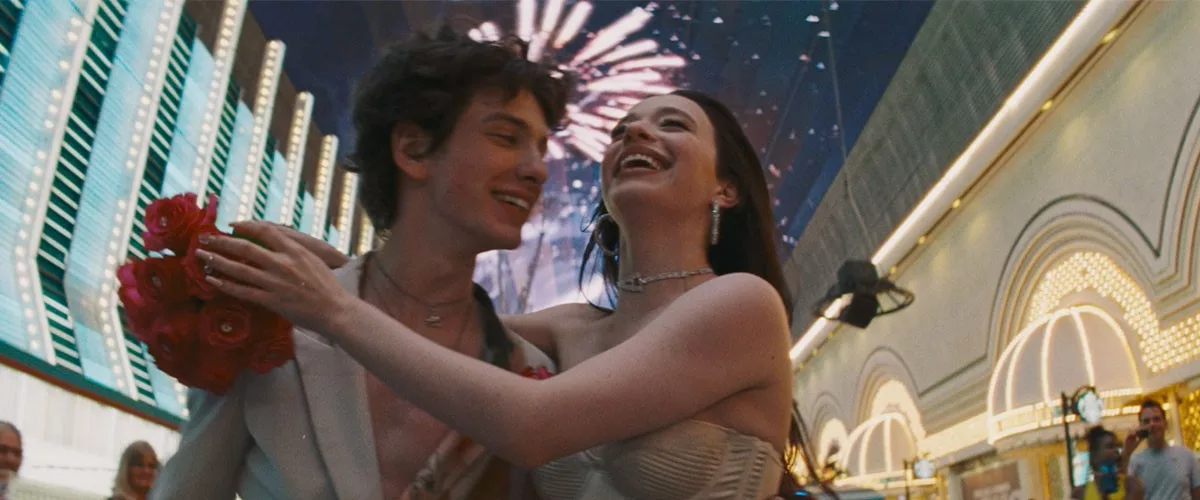
Welcome to Oscar season! Well, more like the preseason. And just like in sports, when offseason player movement starts to congeal into an actual roster at training camp, so too did the major fall festivals (Venice, Telluride, and Toronto) reveal an initial roster of who the big Oscar contenders and hopefuls might be. And as with most years, some of those titles are a surprise. Just as swiftly as we watched heavily buzzed-about films like “Nightbitch” and “Joker: Folie à Deux” fall out of the race after underwhelming premieres, we saw films like “The Brutalist” and “The Life of Chuck”—which definitely weren’t on anyone’s Oscar Bingo Card a month ago—swoop in to fill the void following gushing responses from critics and festival goers.
So where do things stand right now with the top Oscar races? Here’s our third annual look at the biggest questions looming over the major categories. Looking back at last year’s “State of the Race” column following the fall festivals, it’s encouraging just how dead-on many of the assessments were, correctly pinning down both Best Actor and Best Director to only six or seven real contenders fighting for the five nominations. That won’t happen this year. After a summer that didn’t launch any “Oppenheimer”-like potential Oscar juggernauts, the fall festivals didn’t coalesce much critical consensus, either. And even Toronto’s People’s Choice Award—the most accurate Oscar signifier of the past 15 years—could see its streak of perfection come to an end after going to “The Life of Chuck,” a film without distribution. The last time that happened (2011’s “Where Do We Go Now?”) was the only time the winner didn’t go on to a Best Picture nomination since 2007’s “Eastern Promises.”
This is all to say that this year’s batch of post-Toronto awards season assessments cast a far wider net than last year’s did. But enough preamble; let’s go fishing.

Best Picture: How Many Films Feel Safely In?
When I wrote this column last year, we had come through the other side of the fall fests with seven films that had safely secured their spots in the Best Picture race and then another dozen or so films fighting for the remaining three nomination slots. This year has nothing close to that level of certainty. Abysmal box office kicked the wonderful “Furiosa: A Mad Max Saga” out of the race almost immediately, but five other films opened or premiered throughout the summer that could find their way to Best Picture nominations: “Sing Sing” was the little indie that could, “Challengers” was the mid-budget, star-driven drama that no one could stop talking about, and “Dune: Part Two” was the blockbuster that dazzled audiences and critics alike, while “Emilia Peréz” and “Anora” won both raves and awards at Cannes. But all five still harbored questions about whether their mid-year success could be sustained through awards season.
After finishing second and third place, respectively, for Toronto’s coveted People’s Choice Award, “Emilia Peréz” and “Anora” now look pretty certain to claim two of the ten Best Picture nominations. But it’s unclear how many other films are safe to pencil in after the fall fests premiered ten legitimate contenders, with very few standing out from the pack. “The Brutalist” and “Babygirl” premiered to raves in Venice, and “The Room Next Door” won the fest’s Golden Lion, but “Queer” and “Joker: Folie à Deux” left viewers a bit colder and are likely out of the Best Picture race. Then Telluride added “Conclave,” “Nickel Boys,” “The Piano Lesson,” and “Saturday Night” into the mix, while Toronto premiered “Hard Truths,” “The Life of Chuck,” and “We Live in Time.” What might emerge from this group?
Brady Corbet’s “The Brutalist” is the biggest critical darling. While its 215-minute runtime and somewhat transgressive third act will be challenges for A24 to navigate, they managed to get a Best Picture nomination last year for “The Zone of Interest,” so they may be able to steer “The Brutalist” to the same outcome. “Conclave” and “The Room Next Door,” both by major European auteurs (Edward Berger and Pedro Almodóvar), should have strong appeal to the Academy’s large body of international voters. At the same time, “Nickel Boys,” the narrative debut by documentarian RaMell Ross, could become the darling of the more American arthouse-minded Academy members (and it should be well positioned to do so with the second-highest Metacritic score of the fall fest premieres, after “The Brutalist”).
As for more populist fare, Jason Reitman’s “Saturday Night” divided critics but could work its way into the Best Picture field if it’s the theatrical hit that many (including me) expect it to be. The same is true of “We Live in Time,” a weepie romantic drama anchored by two fantastic lead performances. However, both films could have used the boost of placing in the top three of Toronto’s People’s Choice Award, which neither managed. Instead, Mike Flanagan’s “The Life of Chuck” won that award, adapted from a Stephen King short story. The winner of TIFF’s People’s Choice Award has gone on to a Best Picture nomination in 15 of the past 16 years (and the last 12 straight), but “The Life of Chuck,” hasn’t even secured a distribution deal yet, so this may finally be the year that streak comes to an end.
And then, of course, several hopeful contenders haven’t premiered yet, including Steve McQueen’s “Blitz,” which will open the London Film Festival in a few weeks and then close the New York Film Festival the following night; James Mangold’s Bob Dylan biopic “A Complete Unknown,” which will open on Christmas day; and “Gladiator II” and “Wicked,” which open together on Thanksgiving weekend and are hoping to have a “Barbenheimer” effect on one another. And three films seem unlikely but have to be mentioned based on pedigree: Robert Eggers’ horror remake “Nosferatu,” Robert Zemeckis’ “Here,” which reunites Tom Hanks and Robin Wright, and “Juror No. 2,” starring and directed by 94-year-old Clint Eastwood.
And because it’s a weird year where nearly anything could happen, why not throw two loveable long shots into the mix? Although no documentary has ever landed in the Best Picture race, and it’s been 14 years since the last time an animated film scored a Best Picture nomination (2010’s “Toy Story 3”), there are two immense crowd-pleasers that could challenge those streaks: the Netflix documentary “Will & Harper” and the Dreamworks Animation film “The Wild Robot.” Both are melting hearts left and right and in a year where Academy members may view their ballots as unusually wide open, we shouldn’t count either out just yet.
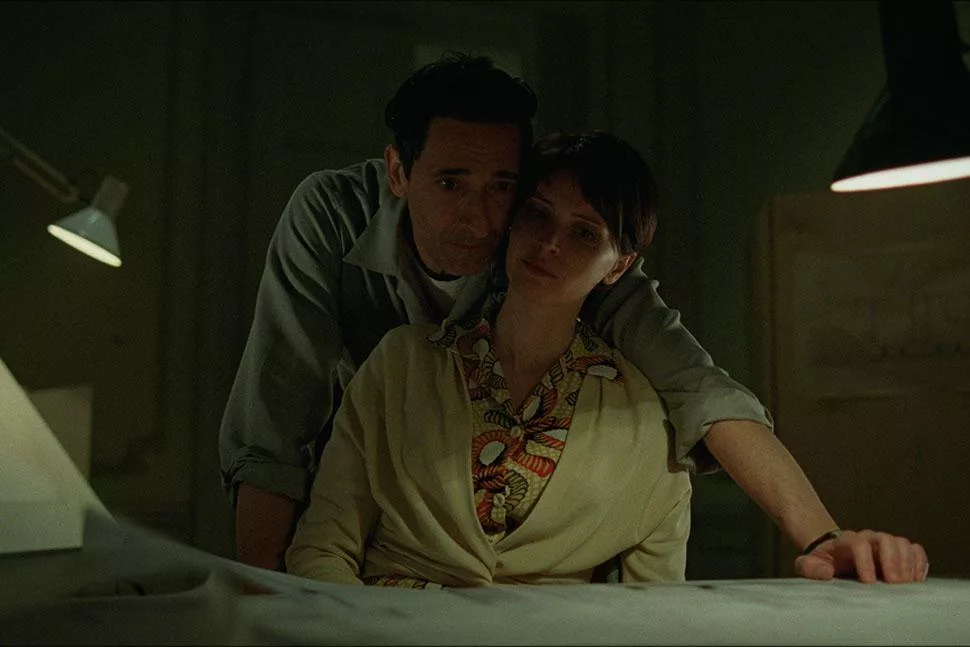
Best Director: Can Someone Become a Heavy Favorite?
Over the last decade, no Oscar category has been more predictable than Best Director, with each year cementing a heavy frontrunner that dominates the entire awards season (Bong Joon-ho upsetting Sam Mendes on Oscar night was the one exception). As it stands now, at the beginning of awards season, none of the contenders quite look the part. Will that change? If “Gladiator II” is a big hit with both audiences and critics, Ridley Scott is the kind of never-won-it-before legend who could quickly run away with this race. But the last few Scott films have been a bit underwhelming, so maybe we shouldn’t go all-in on a “Gladiator II” awards season takeover. George Miller also might have fit that profile, but the disinterest audiences showed toward “Furiosa: A Mad Max Saga” was deafening.
So, who else should we look at? If NYFF-premiering “Blitz” is a critical success, we might start with Steve McQueen. Over the past decade, the slate of Best Director winners has shown wonderful diversity, including three Latin Americans, two women, and two Asian Americans. But it’s a glaring omission that there’s still never been a Black Best Director winner. And a film about the London Blitz also intuitively sounds like the type of “most directed” film that tends to win Best Director Oscars. But if “Blitz” underwhelms, two very different types of archetypal contenders could take pole position: the blockbuster auteur (Denis Villeneuve, “Dune: Part Two”) and the indie darling who reached his potential (Sean Baker, “Anora”).
There’s a prevailing idea that Academy voters who want to award Villeneuve for his visionary work on the “Dune” films may feel inclined to wait until he finishes the trilogy. But we’ve seen this new Academy repeatedly break with stilted voting traditions and conventional wisdom, and waiting to reward Villeneuve for his next film may feel absurd to voters if they think he deserves the Oscar for his current film. Even so, right now, I’d give the edge to Sean Baker because “Anora” increasingly feels like the film of the year. It not only won the Palme d’Or, but it also finished in the top three for TIFF’s People’s Choice Award, which is a double feat only one other film has ever accomplished: “Parasite.” That may seem like a circumstantial stat, but it shows that “Anora” can dazzle both industry snobs and general audiences alike. And we saw how that worked out for “Parasite.”
As for who else might find themselves in this race, it’s almost always the people who helmed the Best Picture nominees with either the most stylistic ambition or the highest degree of difficulty. So the other names likely to be serious contenders here are Jacques Audiard (Emilia Peréz), Brady Corbet (“The Brutalist”), James Mangold (“A Complete Unknown”), Halina Reijn (“Babygirl”), Jason Reitman (“Saturday Night”), and RaMell Ross (“Nickel Boys”). And though it may be a bit more difficult for Pedro Almodóvar (“The Room Next Door”), Edward Berger (“Conclave”), and Mike Leigh (“Hard Truths”) to break into this race because their films mostly consist of people in rooms talking to each other, you should never count out a beloved European auteur with the Academy Directors Branch.
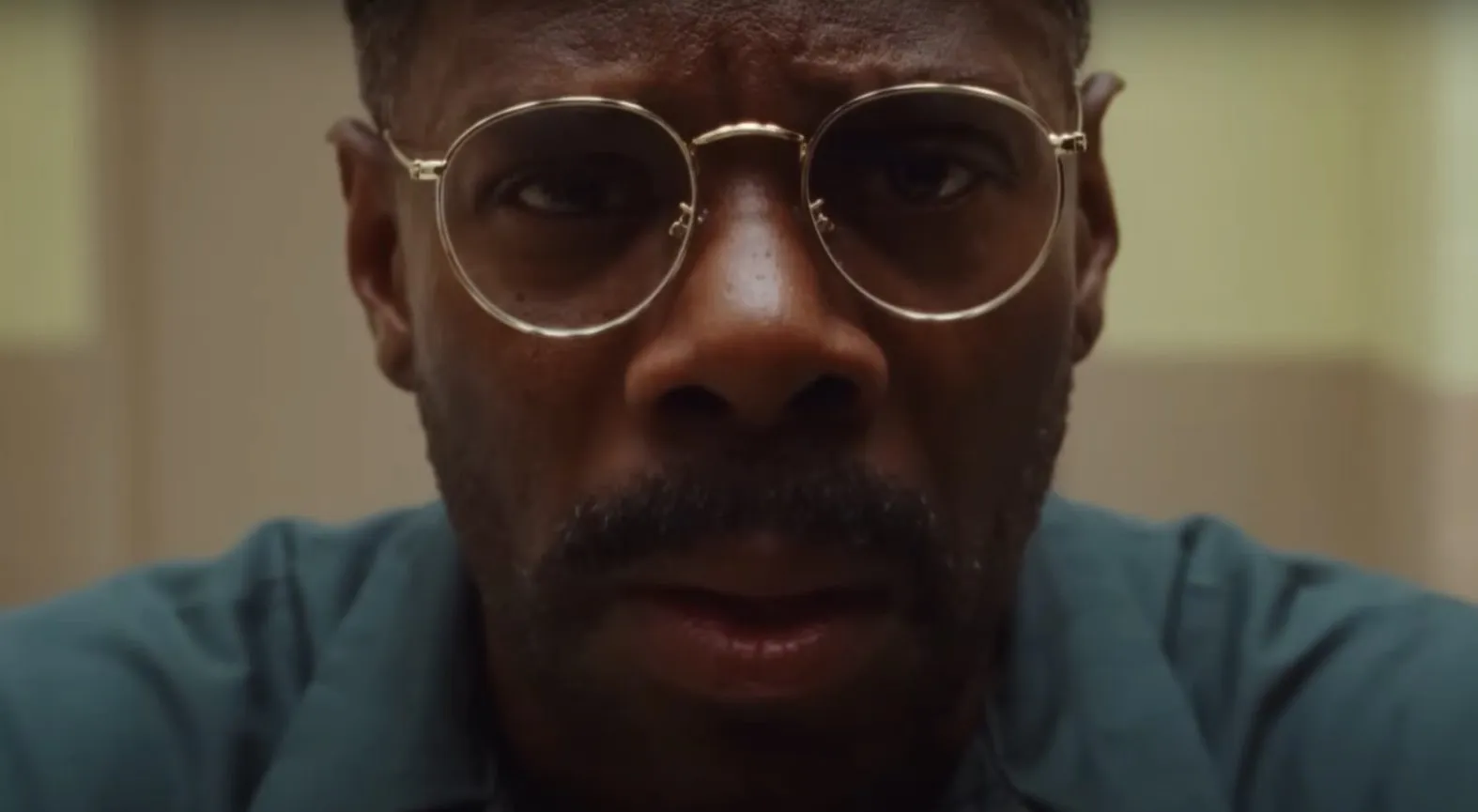
Best Actor: Is Colman Domingo Officially the Frontrunner?
Often when someone looks like a strong contender for an indie released over the summer, they end up not even getting a nomination, as with Ethan Hawke in “First Reformed” or Greta Lee in “Past Lives.” But not only does Colman Domingo still look like he’s firmly in the mix for his emotional turn in “Sing Sing,” but it’s also hard to imagine that anyone has supplanted him as the one to beat.
The list of alleged major Best Actor contenders that were supposed to come blazing out of the fall festivals starts with three heavyweights in Daniel Craig (“Queer”), Ralph Fiennes (“Conclave”), and Joaquin Phoenix (“Joker: Folie à Deux”). But “Joker” flopped with critics, while Craig and Fiennes gave far less showy performances than was assumed. Any of them could still end up with a nomination (especially Fiennes), but none look like a serious contender to win. Other highlights of the fall fests—like “Babygirl” (Harris Dickinson), “Nickel Boys” (Ethan Herisse), “Saturday Night” (Gabriel LeBelle), “September 5” (Peter Sarsgaard), “The Piano Lesson” (John David Washington), and “We Live in Time” (Andrew Garfield)—could launch their lead actors into contention, but probably need to be a hit with audiences first.
Four other contenders give acclaimed, showy performances but have different obstacles to navigate. Hugh Grant has a grand old time as the sinister villain of “Heretic,” but it’s extremely rare for a traditional horror film to get an acting nomination. Sebastian Stan disappears in both “A Different Man” and “The Apprentice,” but he could split his vote between the two films. (And playing a young Donald Trump in the latter may turn voters off anyway.) Adrian Brody gives a phenomenal performance in “The Brutalist,” but by playing an Eastern European Holocaust survivor, voters may feel they already awarded him for that with “The Pianist.” Glen Powell showed wonderful range in Richard Linklater’s “Hit Man,” but the huge subsequent success of “Twisters” may have caused voters to forget about it.
That leaves two performances we haven’t seen yet as the biggest potential threats to Colman Domingo’s frontrunner status: Paul Mescal in “Gladiator II” and Timothée Chalamet as Bob Dylan in “A Complete Unknown.” Both films have real Oscar pedigree, as Russell Crowe won Best Actor for “Gladiator,” and James Mangold directed Joaquin Phoenix to a Best Actor nomination with his last music biopic, 2005’s “Walk the Line.” But even if both films hit big with audiences and Academy voters, it’s still pretty rare for a young star like Mescal or Chalamet to win Best Actor at this early stage of their career. So this race really might be Domingo’s to lose. And after owning the red carpets during last year’s awards season, he’s certainly made an impression on voters.

Best Actress: Will It Be Mikey Madison Versus Saoirse Ronan?
Unless “Wicked” becomes such a hit that it launches Cynthia Erivo into the Best Actress race, this is the lone major category where all the would-be contenders have already premiered. And while gaming out the five most likely nominees will remain difficult until we see how all of these films and performances play to audiences, we know enough about how they played to critics that we can cross some of them off as true threats to win.
That list probably starts with Amy Adams, whose body horror comedy “Nightbitch” was one of the bigger disappointments of the fall festivals. Though the Marielle Heller film still has some ardent defenders, its mostly tepid response in Toronto has firmly halted any Amy Adams comeback narrative. Also receiving mediocre reviews were Pamela Anderson’s star vehicle “The Last Showgirl” and Angelina Jolie playing Maria Callas in “Maria.” Though Jolie remains a threat for a nomination, her contention probably peaks there, as it did for Natalie Portman in “Jackie” and Kristen Stewart and “Spencer” (the other two films in director Pablo Larraín’s trilogy of emotionally isolated female icons). And Naomi Watts might have been a contender for “The Friend,” but the film still doesn’t have distribution and seems unlikely to open this year.
Pedro Almodóvar has a decent track record of getting Oscar nominations for his lead actresses. Still, with Julianne Moore and Tilda Swinton opting for the (correct) decision to both campaign as leads for “The Room Next Door,” it seems increasingly unlikely that either will get nominated (and neither gives an especially showy performance anyway). June Squibb is a loveable longshot as a nonagenarian out for revenge in the Sundance hit “Thelma,” but it’s unclear if Academy members will remember the film come January. Demi Moore should be a strong possibility for her brave performance in the body horror film “The Substance” (which is everything that “Nightbitch” failed to be), but its uncompromising display of Cronenbergian gore may be too much for Academy voters. Nicole Kidman (“Babygirl”) and Florence Pugh (“We Live in Time”) could both vault into contention if their films are hits with audiences, but they’re in firm Wait-and-See mode. And if enough of the above options don’t pan out, the actress most poised to take advantage is probably Marianne Jean-Baptiste, whose acid-tongued protagonist of Mike Leigh’s “Hard Truths” was one of the most wonderful surprises of TIFF.
But even if some of those women can score nominations (and mathematically speaking, at least two of them will have to), none of them feel like potential winners. So, who does? The dark horse is Karla Sofía Gascón, the trans woman at the heart of “Emilia Peréz.” As with Lily Gladstone last year, Gascón will likely receive substantial support not just for the strength of her performance but for the excitement of what her winning could represent for her community. And in a year where Netflix may have only one major contender to throw their substantial campaign resources behind, they’ll surely go all out for “Emilia Peréz.” And yet, I can’t shake the feeling that this race will come down to Mikey Madison (“Anora”) versus Saoirse Ronan (“The Outrun”). Neon will begin rolling out “Anora” next month, so we’ll know pretty soon whether it becomes the zeitgeist hit that many expect. If it does, Madison could run away with this race. But Ronan is not to be underestimated.
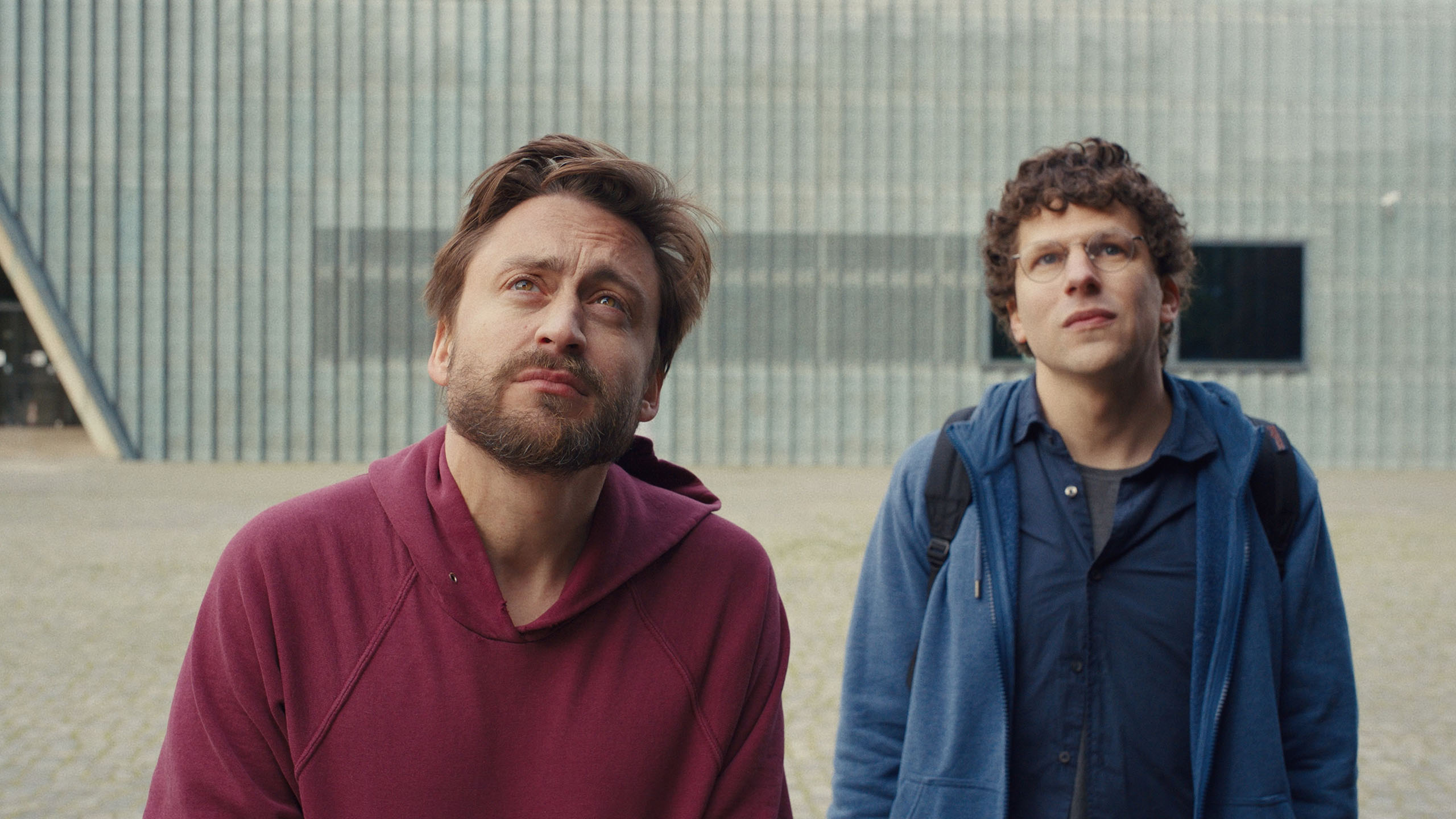
Best Supporting Actor: Who Will Emerge from the Pack?
Last year, it was clear by the end of the summer that this category would be a showdown between Robert Downey Jr. and Ryan Gosling. But this year not only hasn’t seen anyone emerge as a frontrunner yet, but no one even looks like a lock for a nomination. Kieran Culkin (“A Real Pain”) emerged from Sundance as a possible contender, but enthusiasm seems to have died down after his film sat out the fall fests (it’ll play NYFF in a few weeks before opening in November). Cannes then introduced several possibilities into the mix, including Jeremy Strong as Roy Cohn in “The Apprentice” (a film about Donald Trump that voters may steer clear of) and a whopping three strong performances in “Anora” from largely unknown Eastern European actors: Yura Borisov, Mark Eydelshteyn, and Karren Karagulian. Each has its highlight moments in the film, but Borisov’s performance as Igor, the Russian enforcer with the heart of gold, will likely leave the strongest impression, and he could benefit from an overall “Anora” awards season wave if the film really hits.
The fall fests also introduced several new possibilities, including Guy Pierce (“The Brutalist”), Antonio Banderas (“Babygirl”), Drew Starkey (“Queer”), Brandon Wilson (“Nickel Boys”), Tom Hiddleston (“The Life of Chuck”), and two performances each from “Conclave” (Stanley Tucci and Carlos Diehz) and “The Piano Lesson” (Samuel L. Jackson and Ray Fisher). It’s easy to imagine how a groundswell could emerge around the idea of Jackson finally winning a competitive Oscar, while the role Diehz plays in the powerful ending for “Conclave” could make him a major player. Guy Pierce has arguably the showiest role in the biggest critical darling, which could be a potent combination, and Hiddleston has a show-stopping dance sequence in the middle of “The Life of Chuck” that the whole film is built around (though the film still doesn’t have distribution).
This is also the category with the most unknowns in terms of what we haven’t seen yet, as “Blitz” (Harris Dickinson), “A Complete Unknown” (Edward Norton), and “Gladiator II” (Denzel Washington and Pedro Pascal) could each send new contenders into the race if they land with critics and/or audiences. Washington, in particular, steals every second of the “Gladiator II” trailer, but it’s unclear how large or consequential his role in the film will be. That’s 18 names, none of which feels like a safe bet for a nomination. So maybe someone who seemed like a dark horse earlier in the summer could still emerge as the frontrunner: Clarence Maclin in “Sing Sing.” Playing Divine Eye, a man who survives prison by discovering acting and playing Hamlet, Maclin nearly steals the film away from Colman Domingo. So, if Domingo is a frontrunner in his category, maybe Maclin should be too.
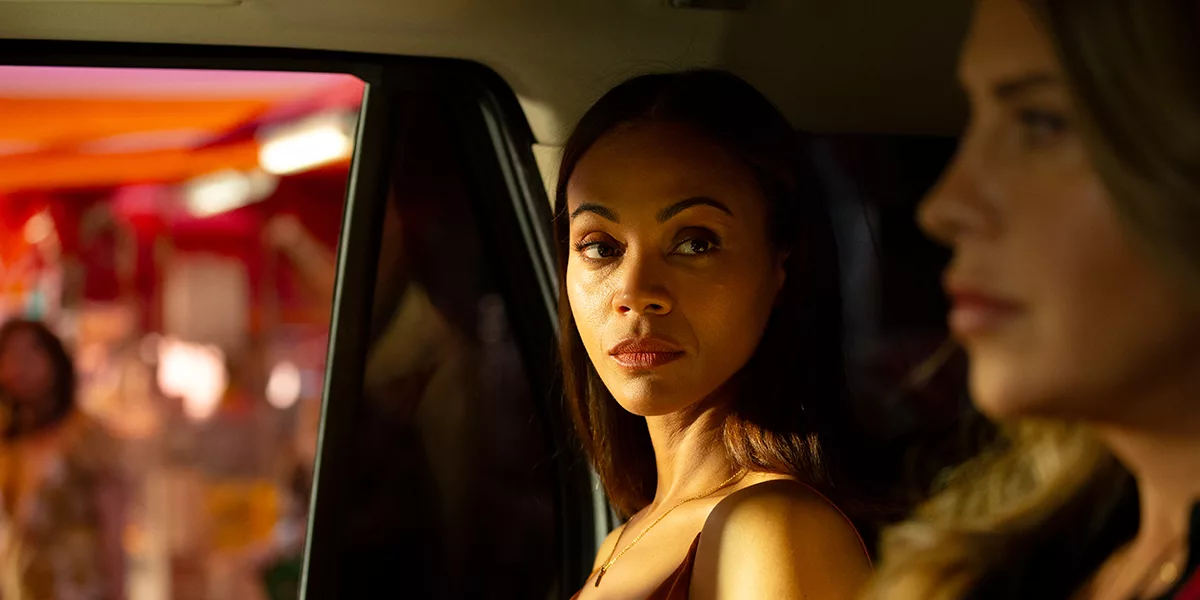
Best Supporting Actress: Could This Be the Most Diverse Set of Nominees Ever?
Though Netflix hasn’t made any official announcements yet on how they’ll campaign all of the actresses at the center of “Emilia Peréz,” the assumption is that Zoe Saldaña, Selena Gomez, and Adriana Paz will all campaign as supporting performances. They should all have a decent chance at getting nominated here (particularly Saldaña and Gomez). Meanwhile, two of the biggest supporting actress contenders to emerge at the fall festivals were Danielle Deadwyler (“The Piano Lesson”) and Aunjanue Ellis-Taylor (“Nickel Boys”). If three or four of those five women end up nominated (and perhaps if Joan Chen joins them for her performance in “Didi”), this year’s Best Supporting Actress field would likely be the most diverse Oscar category in Academy history. And Saldaña and Deadwyler (who was done dirty by the Academy two years ago when she was snubbed for “Till”) should both have a great chance to emerge as the frontrunner here.
Who else may join them? The biggest threats are likely Isabella Rossellini, who leaves a strong impression as a lone woman crashing the Cardinal party in “Conclave,” and Felicity Jones, as Adrian Brody’s disabled wife in “The Brutalist.” But Rossellini has a relatively small part, and Jones doesn’t show up until almost two hours into “The Brutalist,” so neither feels like a sure thing to get nominated. Neither does Lady Gaga, who was once presumed to be a major player for “Joker: Folie à Deux,” but bad critical response to the film has left that in doubt. Maria Bakalova is also a possibility as Ivana Trump in “The Apprentice,” but it’s unclear if Academy voters will have any interest in that subject matter after what could be a traumatizing election season. And Ana de Armas absolutely steals every second she’s on screen in Ron Howard’s “Eden,” but the film doesn’t have distribution yet and is probably a safer bet for a 2025 release.
Two interesting dark horse possibilities are Natasha Lyonne and Carrie Coon in Netflix’s “His Three Daughters,” which is a critical darling but will likely have to make a significant impression on audiences lest its September streaming debut be forgotten about over the long season. And Saoirse Ronan could be a factor for what’s being touted as a supporting role in “Blitz.” But the story of this category should be all of the contenders of color, and it’ll be incumbent on Academy voters to not screw this up so badly that the story ends up being about yet another failure of the Oscars to recognize diversity.
 Print
Print


